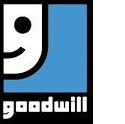 Goodwill’s mission is to put people to work. Our donation centers and the stores that resell those goods exist solely to fund the programs and services that break down the barriers to employment.
Goodwill’s mission is to put people to work. Our donation centers and the stores that resell those goods exist solely to fund the programs and services that break down the barriers to employment.
It is gratifying to know that this purpose resonates with people, as evidenced recently by the release of the inaugural Brand World Value Index, a survey ranking the brands that people believe do the most good for the world. Among 150 companies and non-profits, Goodwill emerged as the No. 1 brand.
The names on the list are as diverse as they are well-known. Goodwill finished immediately ahead of Google and Amazon. Other companies on the list included for-profit juggernauts like Coca-Cola; non-profits ranging from the World Wildlife Fund to the Girl Scouts; and online resources like Kickstarter and Wikipedia.
The survey’s definition of “value” was also quite broad – basically, it was the value a company provides outside of its ability to make money (making the list quite different from something like the Fortune 500, which is based upon total revenues). The perceived worth of an organization in the Brand World Value Index could be measured in the convenience it provides consumers, its impact in the world or its charitable accomplishments.
So in such elite company, how did Goodwill rise to first place?
“Goodwill touches millions of people’s lives in a way that aligns with their own values, and motivates them to actively support the organization’s purpose,” according to the survey, which was conducted by the marketing agency Enso.
The survey is another reminder about Goodwill’s larger purpose. We are proud that our donation centers throughout Northern Arizona recycle more than 10 million pounds of clothing, household goods and other items, and prevent them from winding up in our local landfills. We are dedicated to providing quality goods for low prices at our retail and outlet stores.
But those are the happy sidebars to our main story – the people whose lives are transformed through the power of work because of the employment and job training Goodwill provides them.
People like Joe. When Joe was referred to Goodwill Industries of Northern Arizona, his employment specialist was told that because of Joe’s disabilities (including Fetal Alcohol Syndrome and mild cognitive disabilities), it was unlikely he would ever be able to work. Communication with Joe was difficult at first, but as he became more comfortable with the team at Goodwill, he blossomed. It quickly became clear he wanted both to connect and have meaningful work. At Goodwill, he was able to achieve both.
Sue is another great example of Goodwill’s mission. Last year, she reached an important milestone – 20 years with the Safeway grocery store. It was a job she learned about, and trained for, through Goodwill. Working with an employment specialist to determine what type of job met her interests and skills, she soon focused on wanting to work for Safeway. Goodwill helped her learn details about the job and general “soft skills” like greeting customers with enthusiasm. All of the work paid off; Sue not only landed a job with Safeway, she eventually received a Good Customer Service Award from the company.
Those are only two examples of Goodwill’s success stories. Through a myriad of programs and working with many partners, Goodwill places more than 1,000 people into employment positions each year – often people who are only seen for the challenges in their life, and not their potential.
So know that every time you support Goodwill with your donations and your purchases, you are part of a much larger picture in which people’s lives, families and communities are forever improved because of Goodwill. QCBN
By David Hirsch
David Hirsch is the president and CEO of Goodwill Industries of Northern Arizona.







